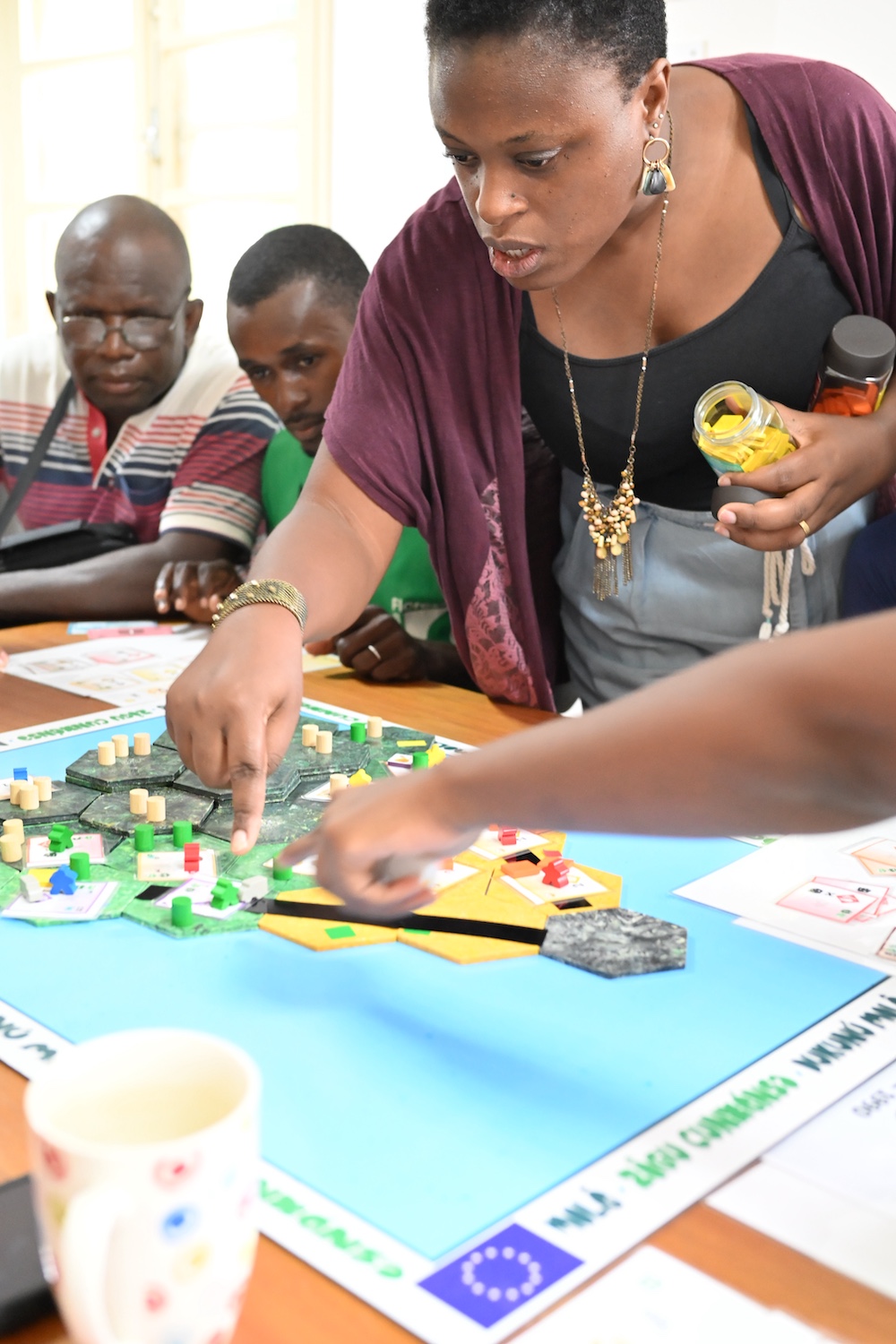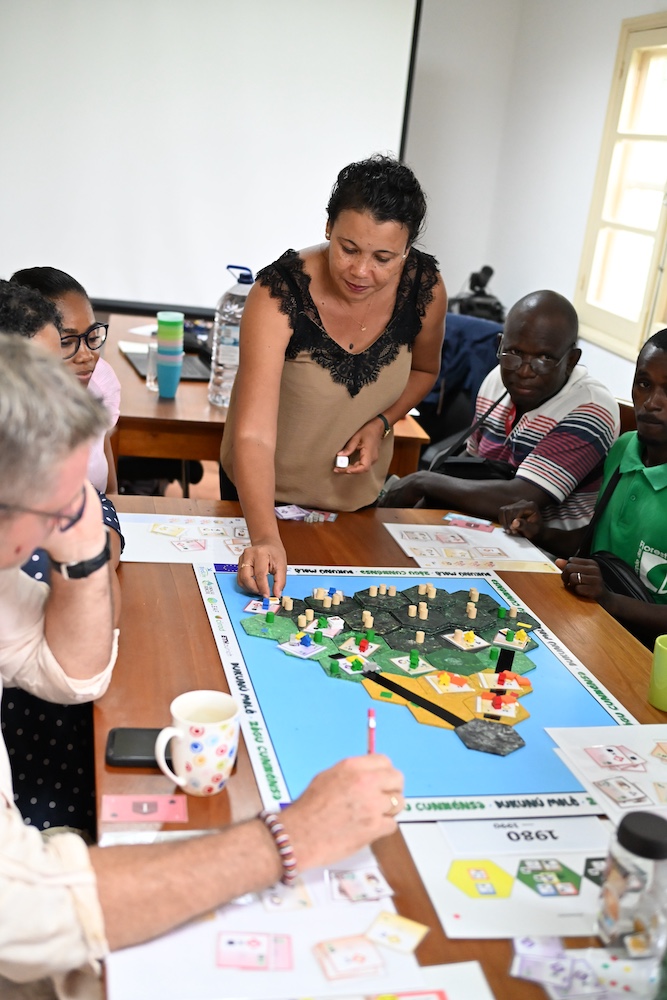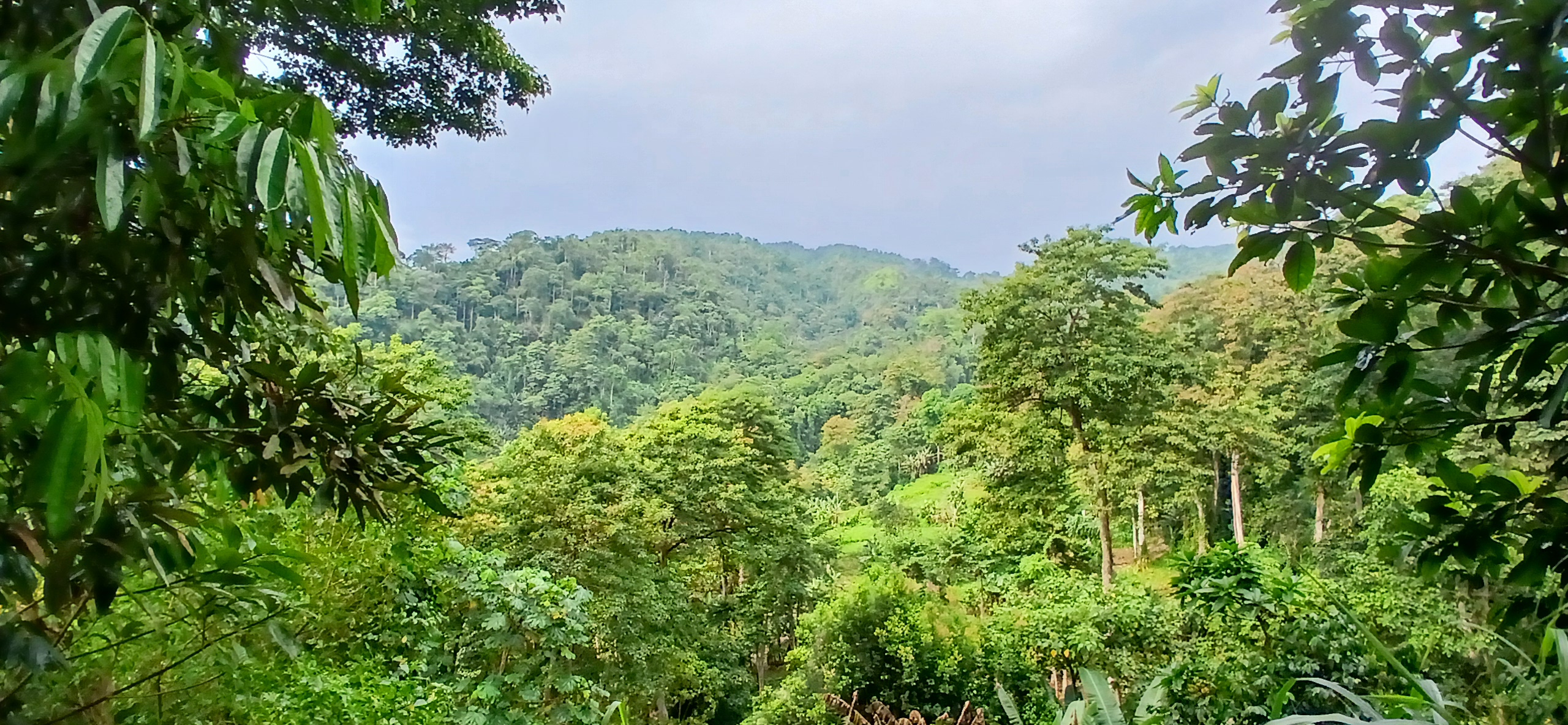



Integrated Landscape Management (ILM) demands more than technical solutions — it requires understanding social dynamics, trade-offs, and decision-making tensions.
This is what we explored with BirdLife International and Oikos – Cooperação e Desenvolvimento, by playing Dukunu Mole – Collaborate to Survive during our learning mission to Landscapes For Our Future’s São Tomé and Príncipe project last month.
A wicked game, developed by Claude A. Garcia (BFH & ETH Zürich) and his colleagues from LEAF and CIRAD, Dukunu Mole simulates a contested landscape and offers insights into how communities can collaborate and integrate, essential for small island states like São Tomé and Príncipe, where spatial competition is explicit.
The role of strategy games in landscape management
Strategy games challenge worldviews and provide the opportunity for structured dialogue to confront and navigate complex transitions.
They are games built and designed to address ‘wicked problems’. Interest in these games for their use in planning and policy-related research and development has been growing for some time. The designation as ‘wicked’ can be used widely to describe issues of our time, in an era of complexity, these are issues which:
- are social or cultural in nature
- involve multiple stakeholders
- have interconnected factors, making them difficult to define or solve
- have numerous potential solutions or approaches
Another commonality is that addressing wicked problems will require experimentation, with no ‘free shots’ – every move has consequences, and there is no definitive formula. The context of wicked problems is thus complex, and the stakes are high; each solution must be adaptive or must invest in an iterative process that fosters a culture of learning.
Sounds like ILM to us.
Revisiting Dukunu Mole
The game paired participants to contemplate the future of the island through four explicit rounds of decision-making. For each 10-year or 10-decade interval, each team is forced to decide how to feed, educate and house a growing population on a finite island with limited resources. There are varied opportunities for income generation, including investing in agriculture, forestry, cocoa production or hunting – each carrying its own risk. The choice to collaborate or move forward alone is up to each team.
Through the sequence of rounds, a few reflections emerged:
🔹 The power of social institutions
Informal community agreements on resource use often regulate landscapes more effectively than formal oversight. In Dukunu Mole, the pressure not to deforest inside the national park was driven more by the strength of social relations with community members and potential fallout than by fines or enforcement by the government.
🤔 Are we leveraging community-driven governance enough?
🔹 Collaboration vs competition
The game reveals that while short-term gains come from competition, long-term resilience depends on cooperation. As each decade progresses, teams are made to feel how precarious their situations are – one bad hunting season or a limited harvest could unravel decades of progress. In these tight moments, strong relations and resource sharing could mean survival.
🤔 How can we foster collaboration in real-world landscapes?
🔹 The game ends, the thinking continues
As we progressed round by round, insights and questions emerged. Participants engaged in an open round of dialogue afterwards, debriefing on their reflections and what surprised them about how they had played the game. The consensus was that, during the gameplay, they had strongly felt the need to survive – the game imposes an urgency and scarcity of resources. However, upon reflection, the mental models used by each team to dictate how decisions were made had been more hidden than we had expected – at times, participants themselves had been blind to these and had made instinctual decisions that later surprised them. The game facilitated learning about the system at hand and self-reflection about one’s beliefs, values and decision-making processes.
Also, notes Garcia, “There is a strong design choice that has consequences in the experience of the game. There is no player elimination. This creates a bias. Competition is, therefore, never fully victorious. In real life, people can leave the island, or die. We need to be aware of this when we draw conclusions about the power of collaboration versus competition.
Summary
The wicked problems of our time – think climate change, poverty, and biodiversity loss – are complex, unpredictable, and shaped by countless interactions with values that are not always local in nature. Traditional planning and control often fail in these dynamic systems. Instead, we must embrace new paradigms of decision-making. Strategy games offer a powerful way to explore future scenarios, challenge assumptions, and test strategies before implementing them in the real world.
Reflection questions
- How can strategy games help us break down barriers to collaboration in landscape management?
- What informal governance structures exist in our landscapes, and how can we strengthen them?
- How do we balance competition and cooperation to ensure long-term sustainability?



